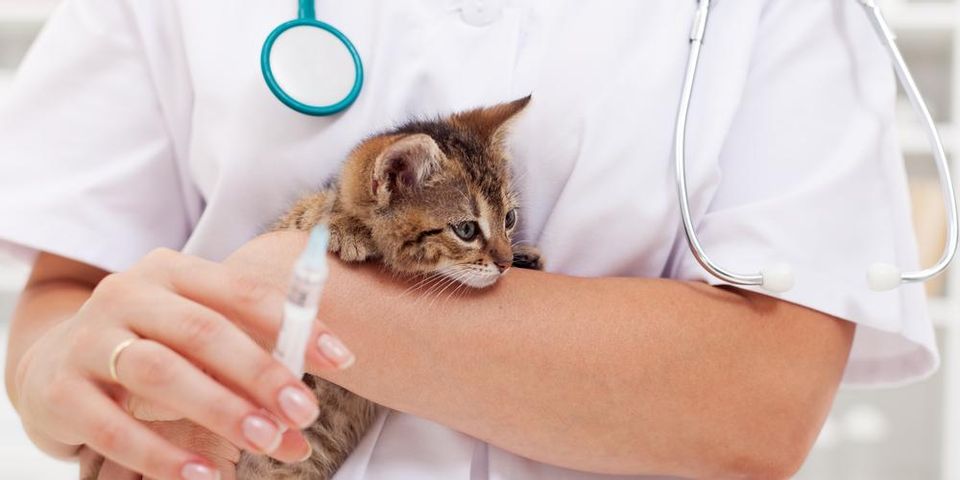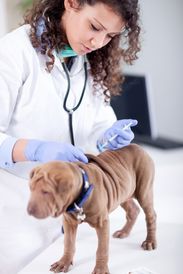How to Tell if Your Pet’s Having a Vaccination Reaction

The majority of the time, vaccinations effectively work to protect humans and pets alike from disease and illness. Very rarely, though, pets may experience adverse reactions. If you notice any unusual changes after you take your pet to the vet for a vaccine, it’s time to turn around and head back for a diagnosis and possible treatment.
 One of the most serious adverse reactions to a vaccination is called anaphylaxis, which is an instant allergic reaction to anything ingested or injected. Within minutes to hours after being injected, pets with this condition may experience vomiting, diarrhea, seizures, or shock. If it remains untreated, your pet may experience cardiac or respiratory failure. If you notice any of these symptoms in your pet, head to your local pet hospital right away.
One of the most serious adverse reactions to a vaccination is called anaphylaxis, which is an instant allergic reaction to anything ingested or injected. Within minutes to hours after being injected, pets with this condition may experience vomiting, diarrhea, seizures, or shock. If it remains untreated, your pet may experience cardiac or respiratory failure. If you notice any of these symptoms in your pet, head to your local pet hospital right away.
Other signs your pet is having a reaction to a vaccination include discomfort, pain, redness or irritation at the injection site, mild fever, or signs of depression. A mild cough may also signal something more serious. In very rare cases, lameness may develop. Essentially, if you notice any abnormalities in your pet’s health post-vaccination, it’s always best to visit your vet to double-check. That way, if something went wrong, they can treat the issue before it exacerbates.
While reactions can occur after vaccinations, they’re rare; don’t let the possibility deter you from getting your pet vaccinated. Since vaccinations protect against potentially life-threatening illnesses and diseases, the benefits involved far outweigh the minor risks.
To get your pet up to date on their vaccinations, visit the team at Alexandria Pike Animal Hospital in Southgate, KY. For more information about this premier vet hospital, call their team at (859) 781-1800. You can also visit the practice’s website.
About the Business
Have a question? Ask the experts!
Send your question

